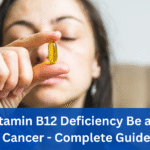Fasting has gained significant popularity in recent years, especially as intermittent fasting and extended fasts have become trendy strategies for weight loss, improved metabolism, and even mental clarity. As more people embrace fasting, questions naturally arise about how to support the body during these periods—particularly regarding the use of vitamins and supplements. One common concern is whether you can take vitamins while fasting without breaking the fast or disrupting its benefits. This article explores the relationship between fasting and vitamin intake, addressing which vitamins are safe to take, which may break a fast, and how to approach supplementation during fasting periods.
Understanding Fasting: What Does It Mean?
Before diving into vitamin use during fasting, it’s essential to understand what fasting actually entails. Fasting typically refers to a voluntary abstention from food for a specific period. Common types of fasting include:
- Intermittent fasting (IF): Cycles between eating and fasting periods, such as 16:8 (16 hours fasting, 8 hours eating).
- Alternate-day fasting: Alternates days of normal eating with days of minimal or no food.
- Extended fasting: Fasting that lasts longer than 24 hours.
During a fast, the body switches from using glucose (sugar) for energy to using stored fat—a state known as ketosis. The goal is often to promote fat burning, enhance cellular repair, and reduce inflammation.
Do Vitamins Break a Fast?
Whether a vitamin supplement breaks a fast depends on its composition. Most vitamins contain very few calories and are unlikely to significantly affect insulin levels or pull the body out of ketosis. However, some vitamins are delivered in forms that include sugars, fillers, or oils that might interfere with fasting.
Here’s a general breakdown:
Water-Soluble Vitamins
- Water-soluble nutrients include the B-complex nutrients and diet C. those vitamins dissolve in water and are normally now not saved within the body, so that they need to be replenished often.
- Can you take them while fasting? sure, water-soluble vitamins are generally secure to take at some stage in a fast. They are unlikely to break your fast, especially if they come in pure form without added sugars or fillers.
- Caution: Taking water-soluble vitamins on an empty stomach can purpose nausea or stomach soreness in some human beings. To keep away from this, some opt to take them at some point of their consuming window..
Fat-Soluble Vitamins
Fat-soluble nutrients consist of vitamins A, D, E, and k. these require dietary fats for correct absorption..
- Can you take them while fasting? Technically yes, but since fat is required for their absorption, their effectiveness may be reduced if taken on an empty stomach. Moreover, if the supplement includes oils or is taken with a fat-based carrier, it might contain enough calories to slightly impact your fast.
Multivitamins
Multivitamins often contain a mix of both water- and fat-soluble vitamins, along with minerals.
- Can you take them while fasting? It depends on the formulation. Some multivitamins include sugar or binders that may trigger a metabolic response. Reading the label is key. A clean multivitamin with minimal fillers is generally safe.
Electrolytes and Minerals
Essential minerals like magnesium, potassium, and sodium are crucial during fasting, especially for longer fasts.
- Can you take them while fasting? Replenishing electrolytes can help prevent fatigue, complications, and muscle cramps related to fasting. Look for sugar-free options.
Gummy Vitamins
Gummy vitamins often contain added sugars or gelatin-based carriers.
- Can you take them while fasting? No, those normally comprise enough energy and sugars to break a fast. They are best consumed during the eating window.
Benefits of Taking Vitamins While Fasting
Taking vitamins during a fasting period can have several potential benefits, depending on your diet and health status.
1. Prevention of Deficiencies
You could not obtain all the nutrients you need if your eating window is small or your diet is not very varied.
Supplementation can help fill these gaps.
2. Support for Energy and Mood
Vitamins B-complex are essential for brain and energy generation. Taking them can help reduce fatigue and brain fog during fasting.
3. Electrolyte Balance
Minerals like sodium and magnesium are essential during prolonged fasts to avoid symptoms of electrolyte imbalance, such as dizziness or palpitations.
4. Immune Support
Vitamin C, D, and zinc play magnificent roles in powering the immune system. Supplementing these during fasting can help maintain immunity.
Potential Risks and Downsides
Although taking vitamins during a fast is often safe, there are a few things to watch out for:
1. Stomach Irritation
Some people feel nausea or an discomfort stomach from taking vitamins, more frequently on an empty stomach. Iron and zinc are common culprits.
2. Reduced Absorption
As mentioned earlier, fat-soluble vitamins may not be effectively absorbed without dietary fat, limiting their benefits.
3. False Security
Relying too much on supplements might lead to neglecting whole food sources of nutrients.
4. Breaking the Fast
While most pure vitamins don’t break a fast, those with fillers, sugars, or flavorings might. Always read the label or opt for clean, fasting-friendly formulations.
Tips for Taking Vitamins While Fasting
To get the most out of your supplementation while fasting, consider these tips:
- Check Ingredients: Avoid added sugars, artificial colors, or oils unless your fasting plan
- Use Powdered or Capsule Forms: These often contain fewer fillers than tablets or gummies.
- Time Your Intake: Take water-soluble vitamins earlier in the day and fat-soluble ones with your first meal for better absorption.
- Stay Hydrated: Water helps the body absorb certain vitamins and prevents side effects like nausea.
- Consider Alternate-Day Supplementation: If your fast is short or infrequent, you may only need to supplement on eating days.
Who Might Need to Supplement While Fasting?
Not everyone needs to take vitamins during a fast, especially if your diet during eating periods is balanced.
- Vegans/Vegetarians: May need vitamin B12, iron, and omega-3s.
- People on restrictive diets: Might lack certain nutrients.
- Athletes: May benefit from extra electrolytes or B-complex vitamins.
- Those doing extended fasts: Should monitor electrolytes and essential nutrient intake more carefully.
Conclusion: Should You Take Vitamins While Fasting?
Yes, you can take vitamins while fasting, and in many cases, it’s beneficial. The key lies in choosing the right type of vitamin, understanding how your body absorbs it, and being mindful of the ingredients in your supplement. Water-soluble vitamins, essential minerals, and clean formulations are generally safe and supportive of a fasting lifestyle.
That said, always listen to your body. If a particular supplement causes discomfort, consider taking it during your eating window. As with any dietary change, it’s wise to consult a healthcare provider, especially if you have underlying health conditions or are fasting for extended periods.
Fasting, when done correctly, can be a powerful tool for health improvement. Pairing it with smart supplementation ensures you’re supporting your body every step of the way.
Frequently Asked Questions (FAQs)
1. Will taking vitamins break my fast?
Most vitamins, especially water-soluble ones without fillers or sugars, won’t break your fast.
2. Can I take fat-soluble vitamins like D and E while fasting?
Yes, but their absorption may be limited without dietary fat. Consider taking them during your eating window.
3. Are gummy vitamins okay during fasting?
No, gummy vitamins often contain sugars and calories that can break your fast.
4. What vitamins are best to take while fasting?
Water-soluble vitamins (B-complex, C) and minerals (magnesium, sodium, potassium) are ideal during fasting.
5. Can I get nauseous from vitamins on an empty stomach?
Yes, some vitamins like iron or B-complex may cause nausea. Take with water or during your eating window if needed.





